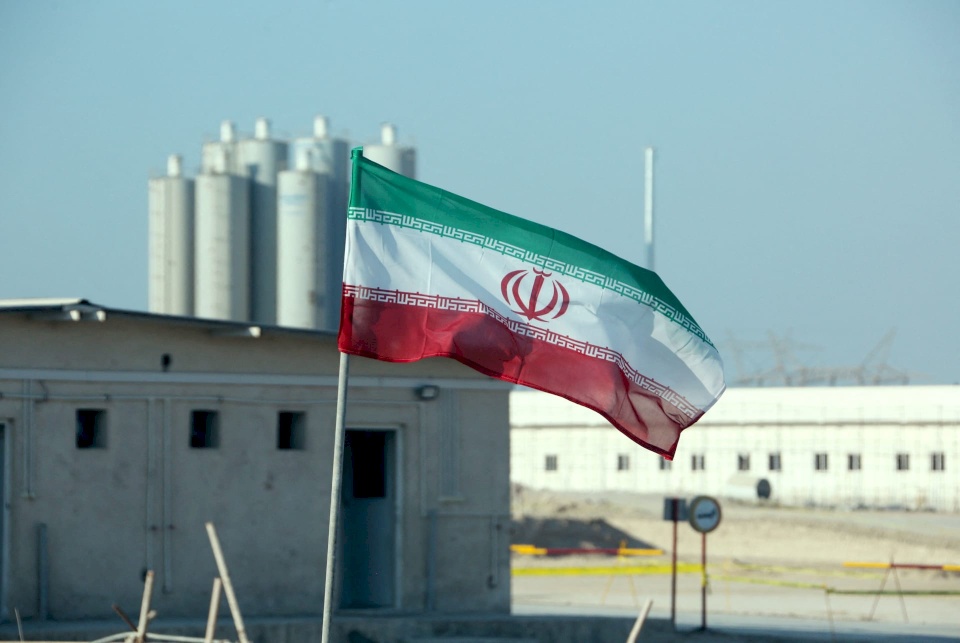
Israeli Report: Iran is No Longer a Threshold Nuclear State
SadaNews - Israeli security institution estimates on the eve of the war against Iran last month considered that delaying this war would be very problematic, claiming that "it is expected that the threat posed by Iran to Israel will intensify," and that the timing of the war was also influenced by the fact that after the presidency of Donald Trump ends, there will be another president in the White House, "who will not necessarily listen to Israeli security interests and concerns, and will not be willing to cooperate in efforts to thwart Iranian armament," according to a report by Tamir Hayman, head of the "Institute for National Security Studies" at Tel Aviv University.
Hayman added that Iran had been developing a missile project, and that "the thousands of heavy warheads that Iran will possess will pose significant challenges to defending Israel; the Iranian capability and experience in making nuclear weapons will reach a level of immunity; and Iranian arms throughout the Middle East will rebuild themselves. The conclusion is that Israel would find itself in an unbearable reality, and therefore an attack on Iran was necessary, despite the risks."
He pointed out that Trump had given a green light for an Israeli attack on Iran, but Israel was concerned he might change his mind, especially if "he concludes that the attack will not be sufficiently brilliant and there will be no chance of gaining glory by joining its execution. In this case, the attack could end in a disastrous failure because without destroying the Fordow facility, Iran could move towards a bomb and practically nothing of the central goals of the attack would be achieved."
Hayman added that the lack of U.S. intervention in the war would lead to a war of attrition, which Israel does not want, and U.S. intervention would create a mechanism to end the war. Moreover, without the U.S., the damage to the Israeli home front would be very severe.
According to Hayman, the possibility that Iranian Supreme Leader Ali Khamenei would order the move towards making a nuclear weapon after the war poses a current threat, as "Khamenei may conclude that a threshold nuclear state is not sufficiently deterred and must move towards the bomb. If he requests a ready-made bomb from another country - North Korea, Pakistan, China, Russia - the threat will escalate compared to estimates before the attack and after it as well."
Hayman, who previously served as the head of military intelligence ("Aman"), stated that "we do not know everything. It will take time to form a reliable estimate of the changes brought about by the Israeli attack. Additionally, decision-making in Iran is organized and takes a long time. In Iran itself, the response and reorganization have not yet been formulated. But at this stage, it is possible to study the extent of disruption in the leadership system and the subsequent damage to the nuclear program, as well as the level of destruction of the missile system."
Despite that, Hayman considered that "Iran is no longer a threshold nuclear state, meaning the time required to start making a nuclear bomb has now become longer than the time needed for Israeli intervention to prevent such a start. Iran can return to the status of a threshold nuclear state within a year to two years. Theoretically, Iran could reach the capability to conduct a nuclear test in less than a year, but this would mean showcasing power without operational capabilities that pose a threat, and it would likely lead to a severe American-Israeli attack."
Hayman asserted that "the war against Iran achieved its goals, and the Israeli security situation has improved in the short term. However, in the long term, it seems that Iran will continue to be a source of threats to Israel unless there is a change in its regime. Iran after the war is a weaker country but is not less dangerous. This requires a new Israeli policy in light of the new situation, balancing between readiness to repeat the attack to maintain achievements and an agreement framework that restricts and curbs, to ensure Iran's distance from nuclear weapons."
He continued that "a nuclear agreement between the United States and Iran should not be rejected, provided that the basic conditions are met to prevent Iran from resuming its nuclear intentions and clarifying red lines: no independent uranium enrichment, with permanent international oversight."
Source: Arab 48

The UAE Seeks to Take Over Civil Administration of Gaza

The Israeli Army Announces Completion of the "Inspection Complex" for Passengers from the...

Report: Turkey, Egypt, and Qatar Work to Organize a Meeting Between Whitcomb and Iranian O...

Occupation notifies immediate demolition of 14 homes in Al-Bustan neighborhood in Jerusale...

Iranian Foreign Minister: Confident of Reaching an Agreement with Washington and Ready for...

UNRWA Warns of Escalating Israeli Violence in the West Bank to Unprecedented Levels

Sisi and King Abdullah Emphasize the Necessity of Full Implementation of the Ceasefire Agr...

